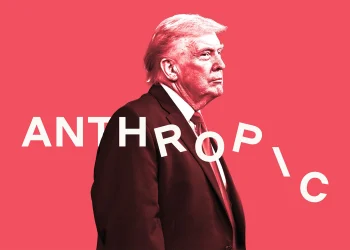Blockchain technology, known primarily for underpinning cryptocurrencies like Bitcoin, holds vast potential beyond digital currencies, especially in Africa. As the continent grapples with various economic challenges, including supply chain inefficiencies, lack of financial inclusion, and data security issues, blockchain emerges as a transformative solution. Here’s how blockchain technology is positioned to revolutionize these key areas and significantly impact Africa’s economic future.
Enhancing Supply Chain Transparency
In Africa, supply chains are often hampered by inefficiencies, lack of transparency, and corruption, which can lead to significant losses and mistrust among businesses. Blockchain technology offers a robust solution by enabling transparent and traceable transactions. Each transaction on a blockchain is recorded on a decentralized ledger that is immutable and accessible to all participants in the chain, making it nearly impossible to alter or falsify.
Example: In the agricultural sector, blockchain can be used to trace the journey of produce from farm to table. Companies like AgriLedger are using blockchain to ensure the traceability of agricultural products, helping farmers get fair prices and consumers receive authentic goods. This not only boosts trust among consumers but also enhances the operational efficiencies of agribusinesses across the continent.
Fostering Financial Inclusion
Financial inclusion remains a significant challenge in Africa, with a large portion of the population lacking access to traditional banking services. Blockchain technology is uniquely positioned to address this issue by enabling decentralized financial services. This means that people can engage in financial transactions, access loans, and even receive direct payments without needing a traditional bank account.
Example: Cryptocurrencies and blockchain-based mobile apps are increasingly being adopted in countries like Nigeria, Kenya, and South Africa, where they enable peer-to-peer transactions without the need for intermediaries. Platforms like BitPesa use blockchain to facilitate cross-border payments and remittances at a fraction of the usual cost and time, directly benefiting the underbanked populations.
Strengthening Data Security
Data breaches and security are critical concerns for individuals and corporations throughout Africa, particularly with the digitization of services. Blockchain’s decentralized nature offers enhanced security features that are crucial for protecting sensitive data against hacks and unauthorized access. By distributing data across a network of computers, blockchain ensures that no single entity has control over the entire dataset, thereby enhancing data integrity and security.
Example: Healthcare is one sector where data security is paramount. Blockchain can secure medical records, ensuring they are only accessible via permissioned entries which can be tracked and audited. Companies like DocChain utilize blockchain technology to secure medical records, giving patients control over their data and enabling seamless, secure sharing between authorized healthcare providers.
Blockchain’s Broader Impact
The implementation of blockchain technology in Africa presents a promising frontier for solving longstanding economic challenges. By increasing transparency in supply chains, enhancing financial inclusion, and securing data, blockchain technology not only supports economic growth but also promotes a more equitable distribution of resources. Moreover, as African governments and institutions begin to recognize the potential of blockchain, there is an increasing push towards regulations that favor innovation while protecting users.
As Africa continues to develop, blockchain stands out as a key technology that could shape the continent’s future, offering a more stable, transparent, and inclusive economic landscape.














